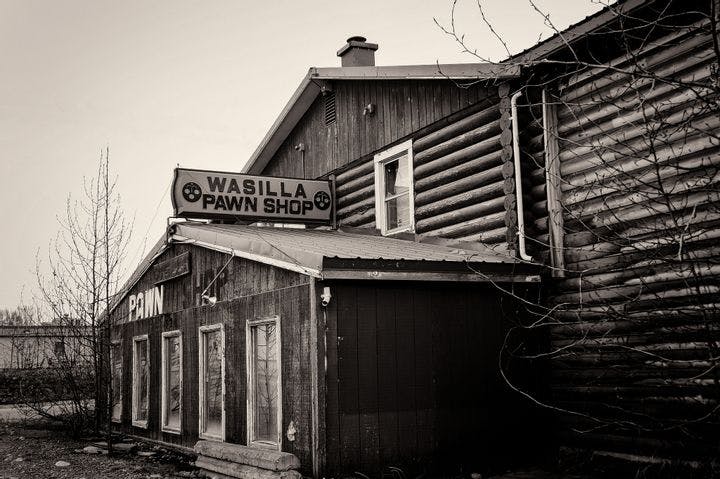Fall 2010
Poor Man's Bank
– Jeremy Lott
The poor we may always have with us, but must they always get a raw deal?
The poor we may always have with us, but must they always get a raw deal? That’s the question award-winning journalist Gary Rivlin poses in Broke, USA. “Poverty, Inc.,” is the somewhat loaded term he uses to describe financial services firms that cater to the working poor—people in American households making up to about $30,000 a year. Normally these folks scrape by, living paycheck to paycheck. But once a year they are flush with cash. Thanks to the Earned Income Tax Credit, they receive lump-sum payments from the federal government, often equivalent to two or three months’ salary.
There are many reasons for persistent working poverty—from single parenthood to injury and disease to just plain awful luck. But this once-a-year payday has arguably made things worse by encouraging poor habits. Instead of trying to conserve some of their scarce resources to build capital or deal with unexpected expenses, poorer Americans are more likely to spend every penny of their current paycheck before the next one comes. They rely on their income tax “refunds” (an inaccurate term because poor Americans receive back far more than was withheld from their paychecks) to pull them out of the financial sinkhole.
To get by between paychecks or to absorb unexpected expenses (e.g., a broken-down vehicle), they often need to borrow money. Because of their meager incomes and cyclical spending, they can’t get the sort of credit that is available to America’s middle class. That’s where Poverty, Inc., comes in. In Rivlin’s telling, that’s also where the problem starts.
From any one or two poor Americans, there is not a lot of money to be made. But poor people’s numbers add up to a market that is extremely lucrative for lenders willing to take some added risks—Rivlin estimates revenues of roughly $100 billion a year, a figure that has seen a meteoric rise over the last two decades as mom-and-pop operations have given ground to large, publicly traded corporations such as Dollar Financial Corporation and Cash America International. Some of these business models are very old, while others are of more recent vintage: pawnshops, check-cashing centers, payday loan shops, instant refunders, lenders that specialize in “subprime” loans.
These institutions extend credit to the poor, but at a steep price. Big payday lenders such as Moneytree are particularly reviled for the high rates they charge customers. Payday loans are small advances—usually $200 to $500—to people with jobs who need cash right this minute. The customer writes a postdated check for the amount of the loan plus a hefty fee. Voters in Ohio recently chased many payday lenders out of the state after they learned that these fees were the equivalent, in some cases, of interest rates as high as 391 percent per year.
Payday lenders complain about the unfairness of the comparison. These are not long-term loans, they say. If you were to express the rental rate of a $29-a-day compact car on a yearly basis, it would total more than $10,000. Switching back and forth between outraged consumer advocates and outraged businessmen, Rivlin reports scrupulously on both sides of the fight over the ethics of payday lending and other financial services for the poor. Ultimately, however, he concludes that the poor are being exploited, and that the government needs to step in with more regulations that would shut some lenders down.
But exploited compared to what? Rivlin only glancingly considers the question. He quotes the CEO of a credit union as saying that rather than take out a payday loan, “I’d say go get a loan shark. . . . They’re cheaper.” The remark is both telling and damning. Loan sharks are cheaper because they must absorb fewer defaults. They have fewer defaults because, unlike payday lenders, they are willing literally to beat the money out of their customers.
Is it worth a few hundred dollars to avoid the threat of broken arms and busted kneecaps? That’s not an academic question, and I confess a personal interest here. My family is doing fine now, thank God, but we went through economic rough patches when I was growing up and made use of the services of Poverty, Inc. Rivlin might say we were exploited—but it beat the hell out of the alternative.
* * *
Jeremy Lott is an editor for the Web site Real Clear Politics (www.realclearpolitics.com) and the author of William F. Buckley (2010).
Reviewed: Broke, USA: From Pawnshops to Poverty, Inc. How the Working Poor Became Big Business by Gary Rivlin, HarperBusiness, 358pp, 2011.
Photo courtesy of Flickr/Kevin
